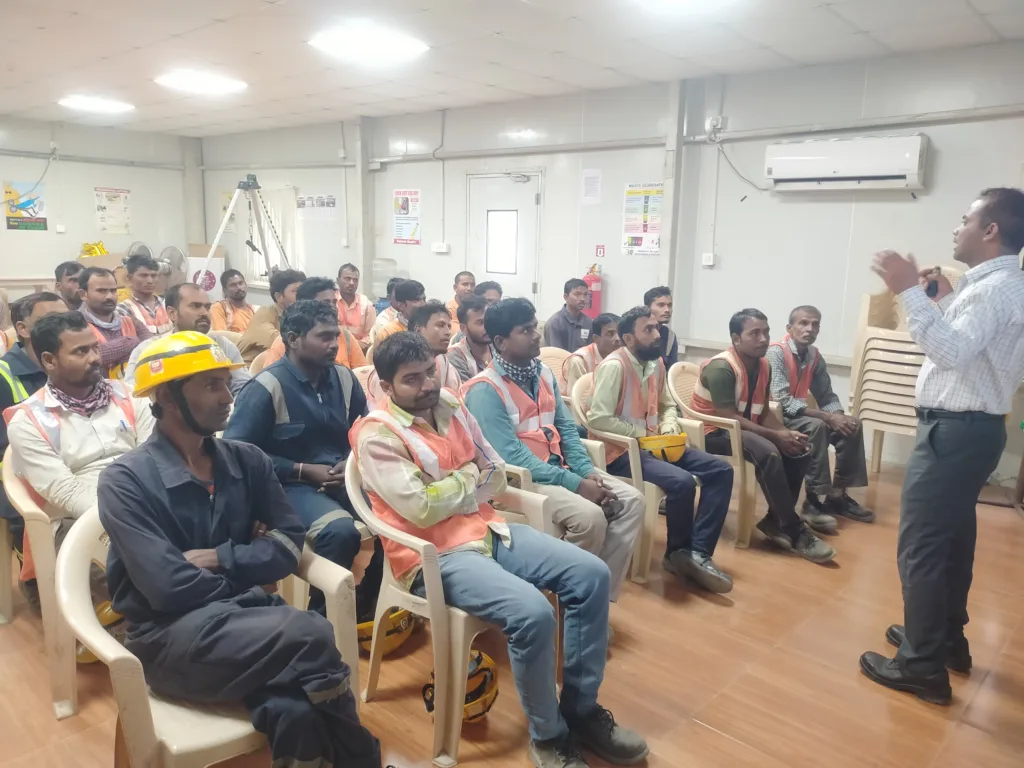
- Scaffold Training Institute (STI): STI offers scaffold training programs and certifications recognized internationally. They provide comprehensive training on scaffold safety, construction, and inspection.
- National Association of Scaffold Erectors (NASE): NASE offers scaffold training and certification programs designed to promote safety and professionalism in the scaffold industry.
- Scaffold & Access Industry Association (SAIA): SAIA provides various training courses, including scaffold erection, inspection, and safety programs. They offer both online and in-person training options.
- Occupational Safety and Health Administration (OSHA): OSHA offers scaffold safety training courses through their Outreach Training Program. These courses cover OSHA regulations, standards, and best practices for scaffold safety.
- Construction Industry Training Council (CITC): CITC offers scaffold training programs that cover scaffold erection, inspection, and safety procedures. They provide hands-on training and certification opportunities for individuals working in the construction industry.
- International Powered Access Federation (IPAF): While primarily focused on aerial work platforms (AWPs), IPAF also provides training on the safe use of mobile elevating work platforms (MEWPs), which can include scaffold-related training.
When choosing a scaffold training institute, consider factors such as the reputation of the organization, the comprehensiveness of the training program, instructor qualifications, accreditation, and whether the training meets regulatory requirements in your region. Additionally, look for programs that offer practical, hands-on experience in scaffold erection, dismantling, and safety procedures.
CISRS stands for Construction Industry Scaffolders Record Scheme. It is a recognized scaffold training scheme in the construction industry, particularly prevalent in the United Kingdom and some other countries. The CISRS scheme aims to provide standardized training and certification for scaffolders, ensuring that individuals working in the industry have the necessary skills and knowledge to erect, dismantle, and inspect scaffolding safely.
Key aspects of CISRS include:
- Training Courses: CISRS offers various training courses tailored to different levels of experience and expertise, such as Basic Scaffold Inspection, Advanced Scaffold Inspection, Scaffold Supervisor, and more.
- Certification: Upon successful completion of the training courses and assessments, individuals receive CISRS certification, which verifies their competency in scaffold-related tasks.
- Industry Standards: The CISRS scheme adheres to industry standards and regulations regarding scaffold construction and safety, ensuring that scaffold structures are erected and maintained according to best practices.
- Renewal and Continuing Professional Development (CPD): CISRS certification typically needs to be renewed periodically, and individuals may need to participate in CPD activities to stay updated with industry developments and maintain their certification status.
- Recognition: CISRS certification is widely recognized within the construction industry, and many employers require their scaffolders to hold CISRS certification to ensure compliance with safety standards and regulations.
Overall, CISRS plays a crucial role in promoting safety and professionalism within the scaffolding sector by providing standardized training and certification for scaffolders.
- Research: Start by researching scaffold training institutes in your area. You can use search engines, online directories, or industry association websites to find reputable training providers.
- Accreditation: Look for institutes that are accredited by relevant authorities or industry bodies. For scaffold training, accreditation from organizations like CISRS (Construction Industry Scaffolders Record Scheme) can indicate that the training meets industry standards.
- Course Offerings: Check the courses offered by the institute and ensure they cover the topics you’re interested in. Look for courses that provide both theoretical knowledge and practical hands-on training.
- Instructor Qualifications: Find out about the qualifications and experience of the instructors who will be conducting the training. Experienced instructors with a background in scaffolding and construction can provide valuable insights and guidance.
- Facilities and Equipment: Visit the training institute if possible or inquire about their facilities and equipment. A good training institute should have adequate facilities for practical training, including scaffold structures for hands-on practice.
- Reviews and Recommendations: Look for reviews and testimonials from previous students to gauge the quality of training provided by the institute. You can also ask for recommendations from colleagues or industry professionals.
- Cost and Schedule: Consider the cost of the training program and whether it fits within your budget. Also, check the training schedule to ensure it aligns with your availability.
- Continuing Education: Inquire about opportunities for continuing education or advanced training courses offered by the institute. Continuing education can help you stay updated with the latest developments in scaffold technology and safety standards.
By following these guidelines and conducting thorough research, you can find a practical scaffold training institute that meets your needs and helps you develop the necessary skills for working safely in the construction industry.


